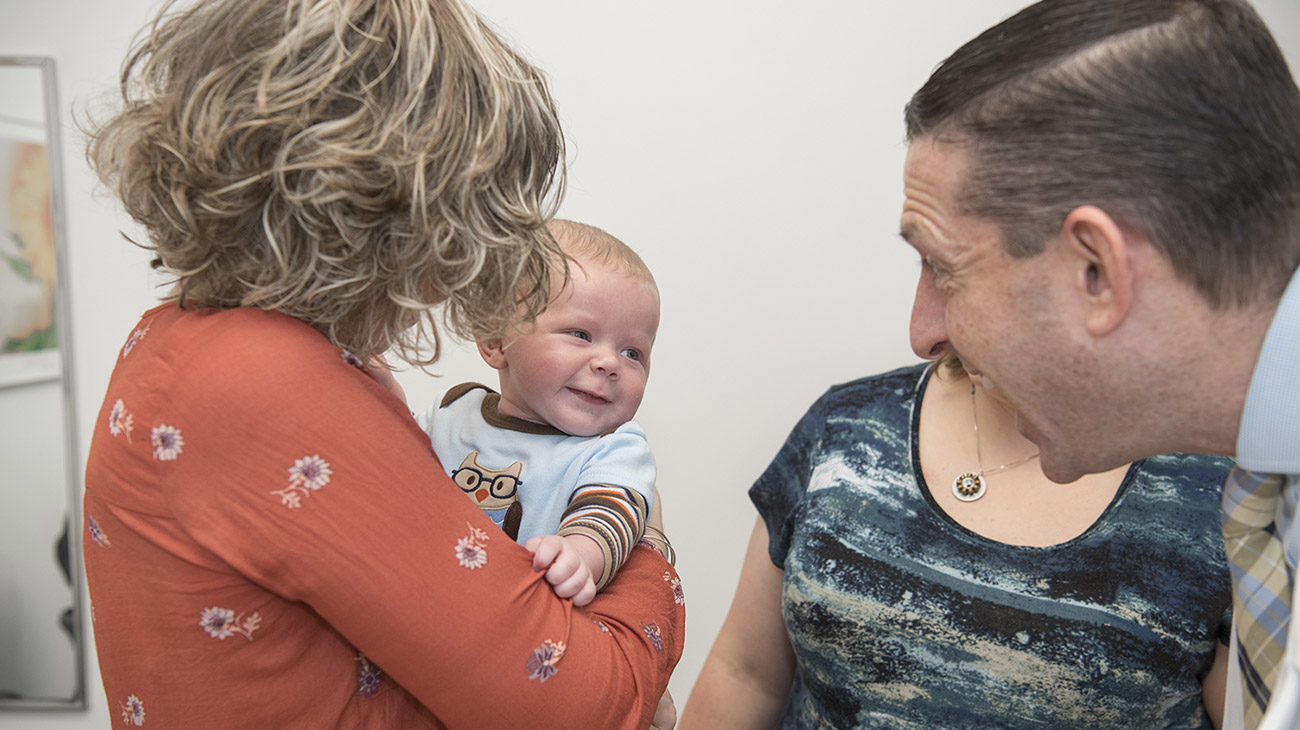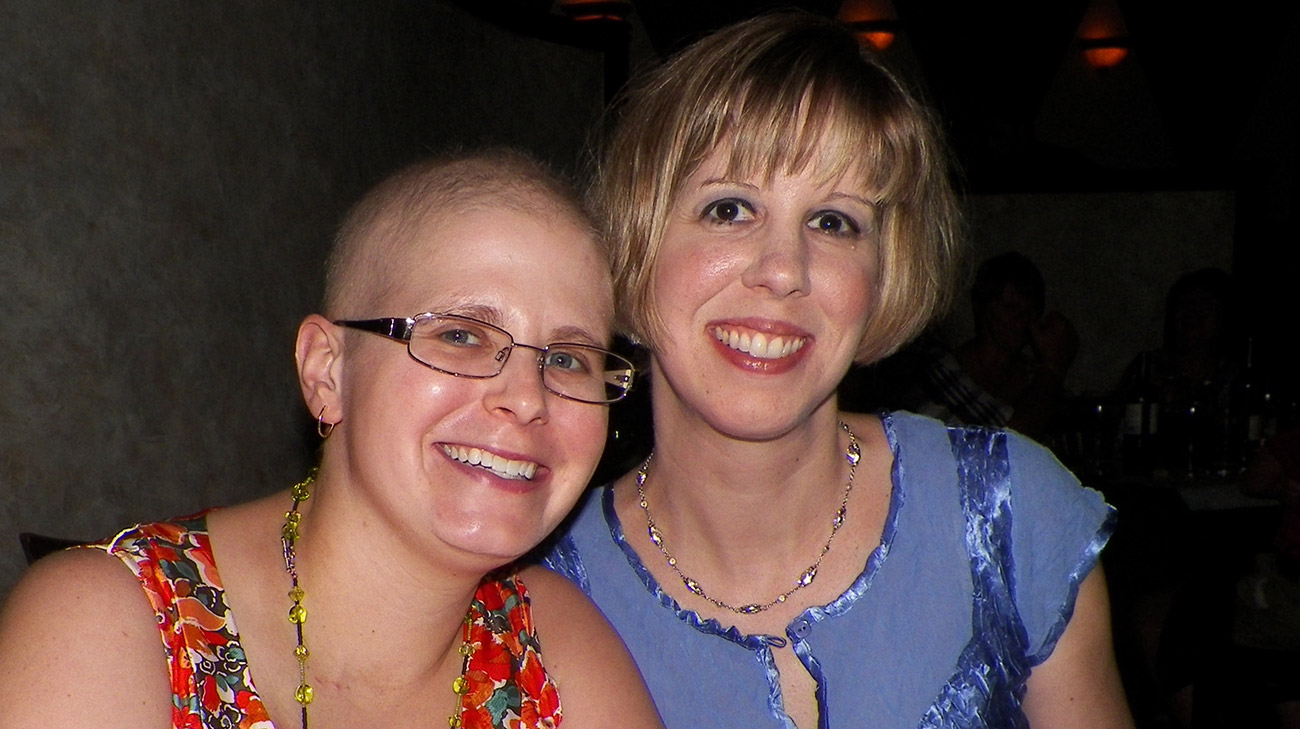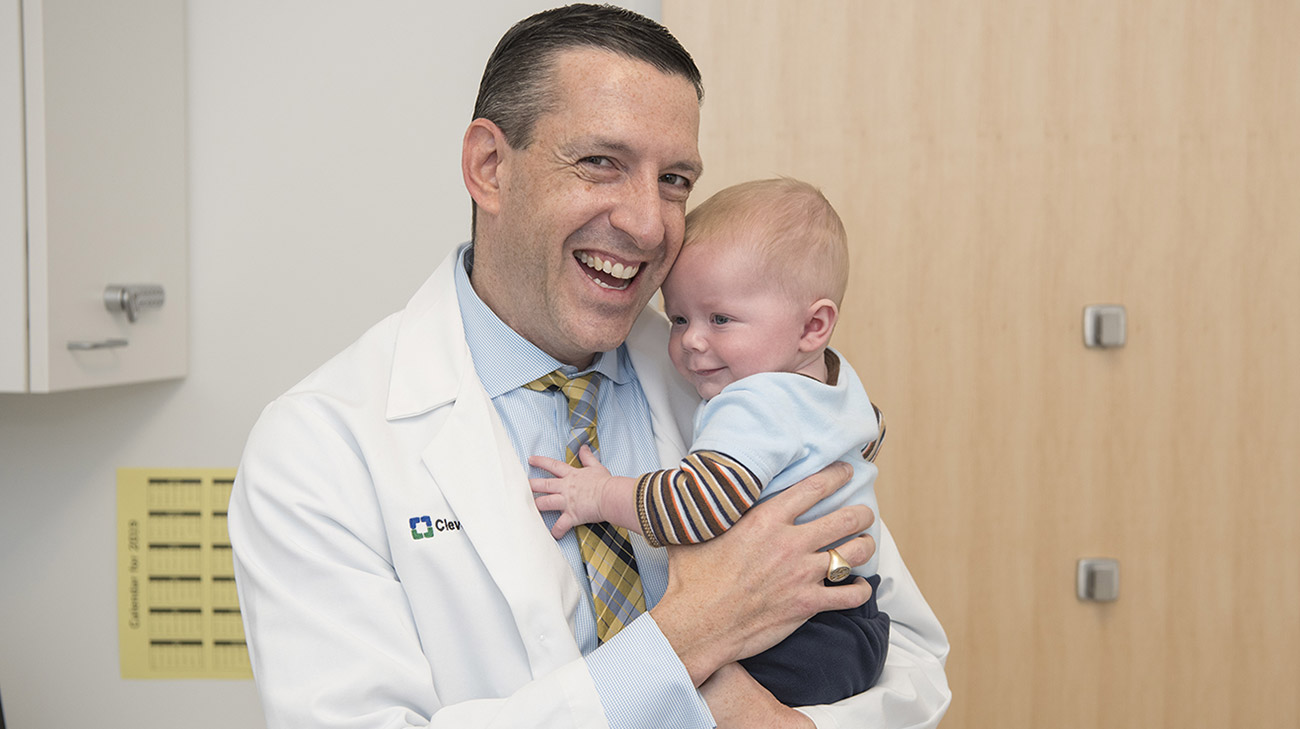
For years, Mikkael Sekeres, MD, has jokingly suggested to his patients who are pregnant they name their baby after him.
He doesn’t recall if he dropped that line on Athena Mericsko, whom he successfully treated for acute promyelocytic leukemia, a cancer of the blood and blood plasma. However, she and partner Melissa Zagata clearly got the message. On July 31, 2018, they welcomed 8.5-pound Henry Thomas-Mikkael Zagata into the world.
Dr. Sekeres, director of the Leukemia & Myeloid Disorders Program at Cleveland Clinic Taussig Cancer Institute, couldn’t be happier. “It’s both exciting and awe-inspiring to have someone named after me,” he commented. “I just hope he doesn’t take after my looks!”
When Athena met Dr. Sekeres in 2012, her life had turned upside down in a matter of days. Feeling lethargic for several weeks, and suffering from severe and unexpected bruising, she, at last, went to her local doctor at the urging of Melissa and her mother, who is a former nurse.

Dr. Sekeres and Henry were all smiles during one of Athena’s appointments, at Cleveland Clinic Taussig Cancer Center. (Courtesy: Cleveland Clinic)
Results from a battery of tests shocked them all: the diagnosis was leukemia. Within 24- hours, she was admitted to Cleveland Clinic.
“It all happened so fast, we barely had time to process it,” Athena recalled. “That was probably a good thing, because we didn’t have time to second guess, or wonder what would happen next.”
She recalls being upset and confused before Dr. Sekeres entered her room, sat down on the edge of her bed and spoke to her and Melissa. “He said, ‘We’re going to be able to do this, together. It’s going to be a tough fight, but we’ll get this into remission.’ In addition to being an amazing physician, he was able to immediately connect with us on a personal level.”
According to Dr. Sekeres, treatment advancements have made several forms of leukemia quite treatable. “A lot of people assume that when you have a diagnosis of leukemia it’s a death sentence, but a number of them are actually quite curable,” he said. “And that was the case with Athena.”
The key, however, was to start intensive treatment quickly. Hence, her immediate admission to the hospital for what would be a six-week stay. Rounds of chemotherapy and blood transfusions, followed by doses of a Vitamin A derivative and arsenic trioxide (ATO) – enabled Athena to raise her dangerously low platelet levels.

Athena (left) underwent rounds of chemotherapy and blood transfusions to treat her cancer. (Courtesy: Athena Mericsko)
Following a few more months of outpatient treatment, all signs of the cancer were gone. Athena has been in remission for six years now. While appreciative of the care she received from the entire Cleveland Clinic staff, Athena believes Dr. Sekeres was the key to her survival and recovery: “I truly believe I wouldn’t be here today without him. He was my doctor and my friend.”
Dr. Sekeres has written frequently on his views about communicating with patients. He believes physicians too often create a wall between themselves and patients, especially when dealing with sensitive or life-threatening topics.
“We should speak plainly to patients and have an honest discussion. We shouldn’t hide behind complicated medical terms, which we often use as a shield when we feel uncomfortable,” he noted.
That meant frequently chatting with Athena and Melissa – who are both assistant professors of English at Cuyahoga Community College – about literature and other common topics. Athena noted Dr. Sekeres was also “liberal with hugs and has a great sense of humor. We just really loved his bedside manner. It’s obvious he really cares about patients.”

Athena and Melissa wanted to honor Dr. Sekeres by using his first name as one of Henry’s middle names. (Courtesy: Cleveland Clinic)
When Athena became pregnant last year following three rounds of intrauterine insemination (IUI) (a type of fertility treatment), she and Melissa decided to honor Dr. Sekeres when they discovered a boy was on the way.
Henry Thomas-Mikkael’s birth was complicated, due to placental abruption, requiring him to be immediately treated for five days in Cleveland Clinic Children’s Neonatal Intensive Care Unit. He’s doing just fine now, even making a brief neighborhood appearance on Halloween dressed as Tigger.
He’s also met his namesake. “Henry is adorable,” Dr. Sekeres enthusiastically said. “I’m so happy he has my name.”
Athena added, “Hopefully, he’ll want to be a doctor.”
Related Institutes: Cleveland Clinic Cancer Center

